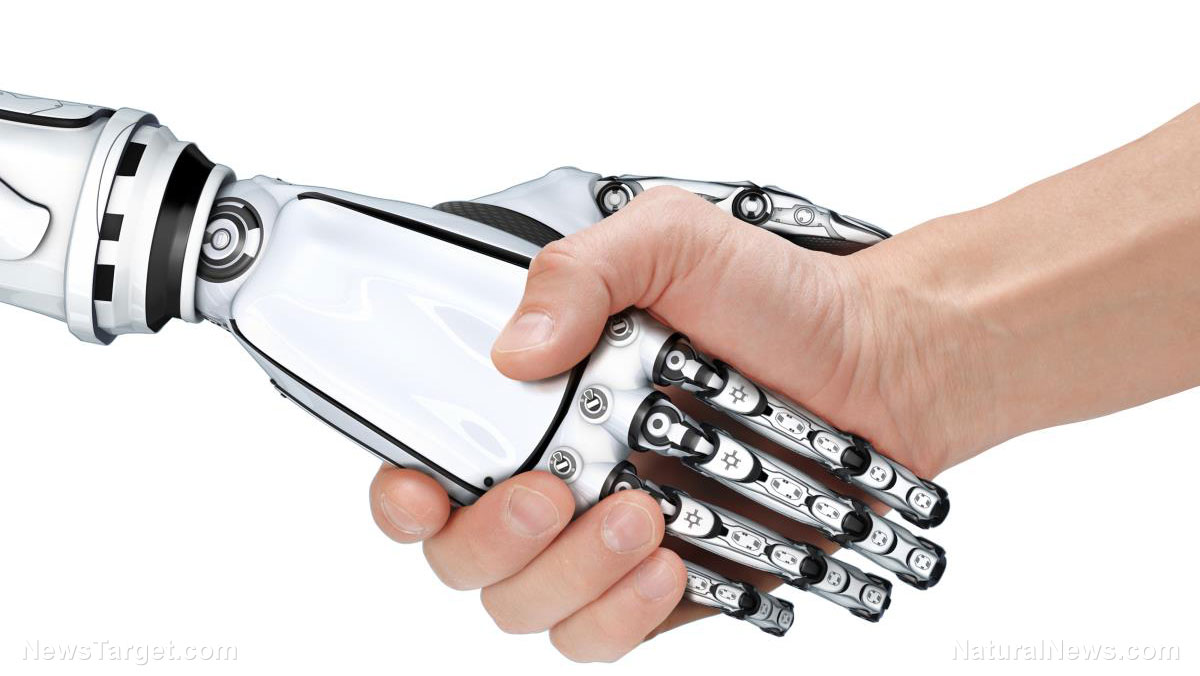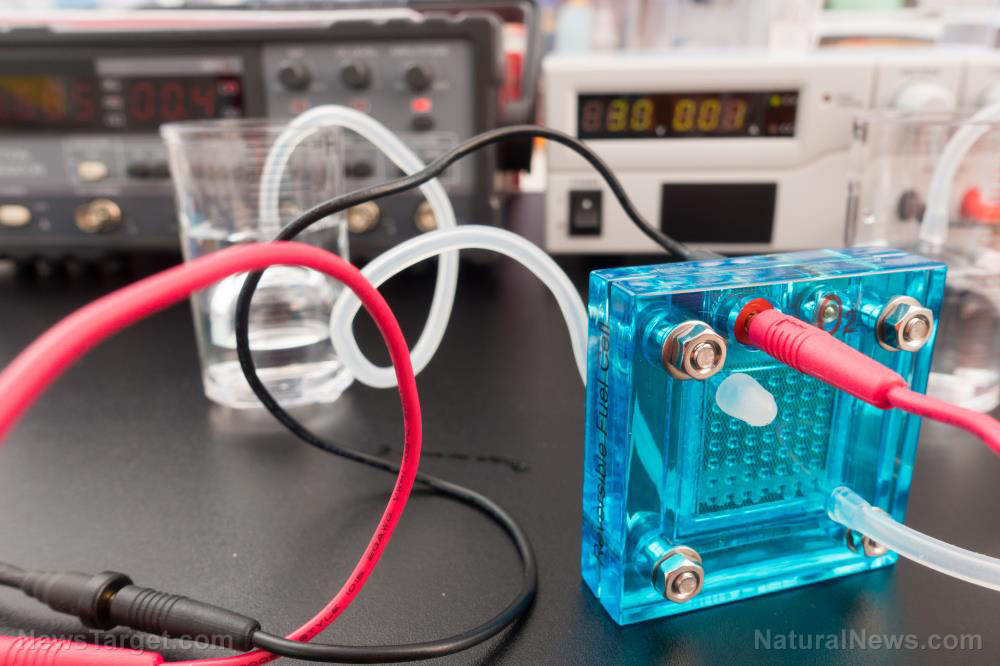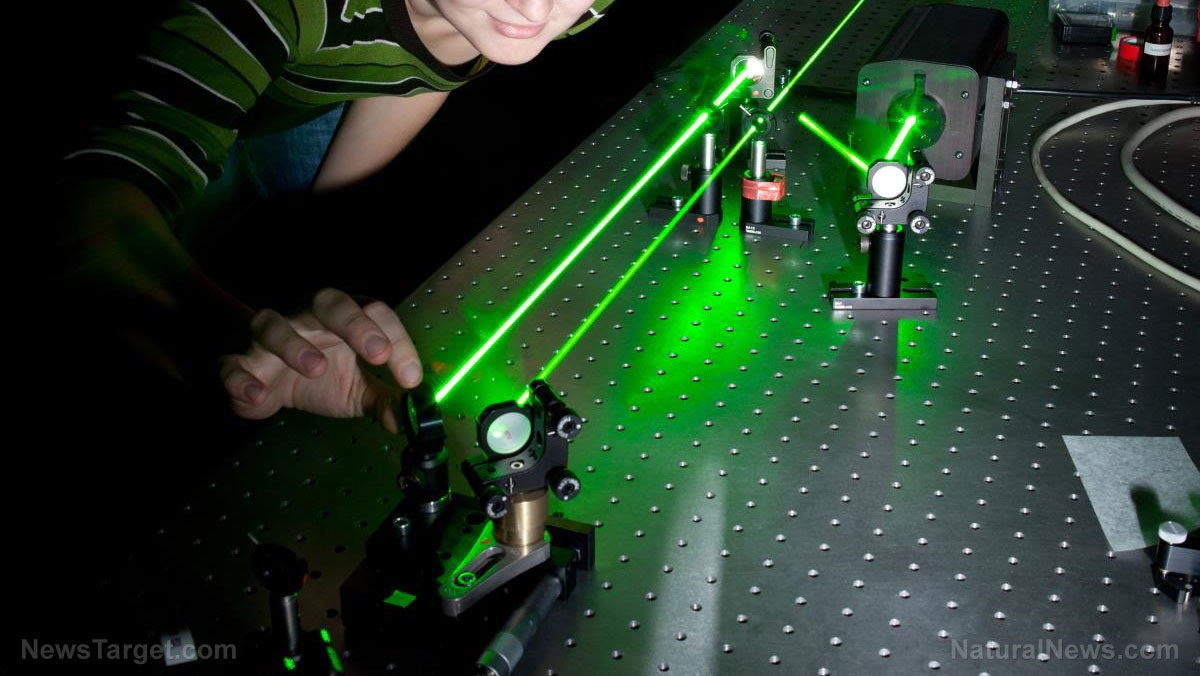Creepy stalkers: Robots can now track moving objects with extreme accuracy
06/17/2019 / By Ethan Huff

Scientists from the Massachusetts Institute of Technology (MIT) have reportedly developed a new robot technology that uses tiny radio-frequency identification (RFID) tags to track moving objects in realtime with incredible accuracy.
In a paper presented at the recent USENIX Symposium on Networked Systems Design and Implementation, researchers revealed how this new-wave robotics technology is capable of locating moving objects within 7.5 milliseconds, on average, with an error rate of less than one centimeter.
They further claim that this technology, known as TurboTrack, will revolutionize the role of robots in manufacturing, distribution, and other areas of logistics – presumably eliminating the need for humans to do such jobs.
According to reports, a special reader sends a wireless signal that reflects off of RFID tags placed both on objects needing to be tracked, as well as on their surroundings. An algorithm then computes the various reflected signals to identify the precise location of the RFID tag intended for tracking.
The hope is that this new technology will eventually replace existing computer vision technology, which is limited in its capabilities. While computer vision often gets “confused” in cluttered environments, RFID computations have no such restrictions.
“If you use RF signals for tasks typically done using computer vision, not only do you enable robots to do human things, but you can also enable them to do superhuman things,” stated Fadel Adib, an assistant professor at MIT and principal investigator in the MIT Media Lab, about how it works.
“And you can do it in a scalable way, because these RFID tags are only three cents each,” the founding director of the Signal Kinetics Research Group further added.
For related news, be sure to check out Robotics.news.
Scientists are always claiming that advanced robotics will improve life for humans – but is there actually a more sinister purpose for this technology?
While such innovations might sound pretty cool on the surface, the reality is that infusing human abilities into soulless robots, which is what these scientists have done, opens up a Pandora’s box of limitless evil – especially when artificial intelligence (AI) is involved.
As we’re already seeing with Big Tech, the increasing use of robotics by large corporations is actually functioning as a catalyst to enslave humanity.
As admitted by one of the MIT scientists who helped to develop these new “stalker” robots, they’re fully equipped to function as spy drones for tracking pretty much anything, including humans.
“You could enable a swarm of nanodrones to form in certain ways, fly into cluttered environments, and even environments hidden from sight, with great precision,” stated Zhihong Luo, a graduate student with the Signal Kinetics Research Group, who’s described as the paper’s first author.
In other words, in a future dystopian world, humans might be tagged with RFID chips that these stalker robots will be programmed to track down with the same “great precision” that they’re right now doing with products in a warehouse.
As explained by Mike Adams, the Health Ranger, this is always how it starts. A new technology comes out of the woodwork that’s branded and marketed as being good for humanity. But over time, the truth comes out that said technology is really about human enslavement – but by that point, it’s already too late.
“At the dawn of the invention of television, the technology was hailed as a way to bring uplifting education to every corner of the globe,” Adams writes.
“It didn’t take long, however, before broadcast television was turned into a means to control the masses through the dissemination of fake news – which has been going on forever – and the programming of consumers to purchase branded products often made with toxic ingredients.”
Sources for this article include:
Tagged Under: Amazon, breakthroughs, dangerous tech, Facebook, future tech, Google, inventions, military tech, nanodrones, privacy watch, RFIX, robotics, robots, spy drones, spying, stalkers, surveillance, Terminator robots, tracking, weapons technology
RECENT NEWS & ARTICLES
COPYRIGHT © 2017 FUTURETECH.NEWS
All content posted on this site is protected under Free Speech. FutureTech.news is not responsible for content written by contributing authors. The information on this site is provided for educational and entertainment purposes only. It is not intended as a substitute for professional advice of any kind. FutureTech.news assumes no responsibility for the use or misuse of this material. All trademarks, registered trademarks and service marks mentioned on this site are the property of their respective owners.



















